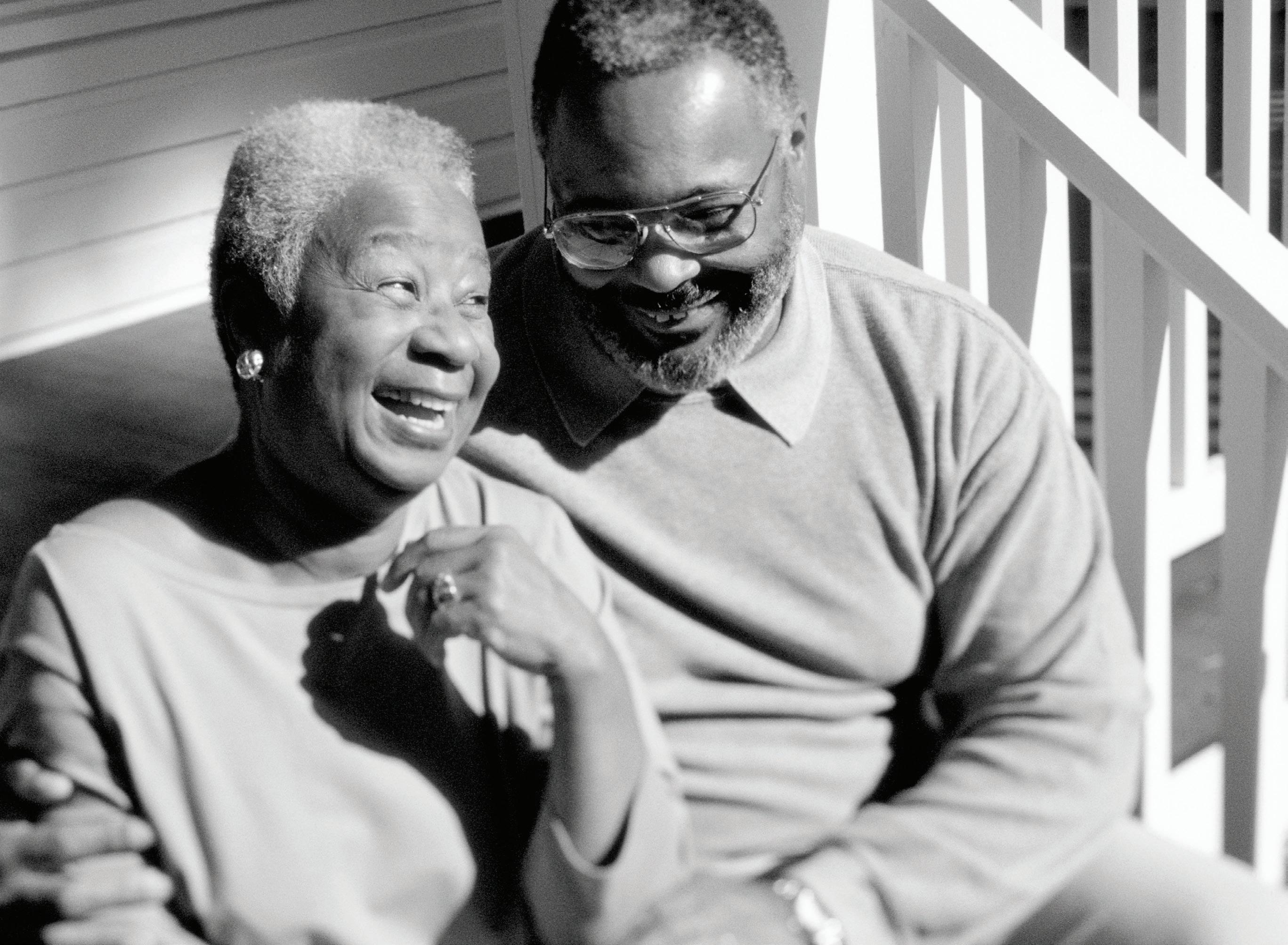










Philadelphia Corporation for Aging (PCA) is the Area Agency on Aging for Philadelphia County and is dedicated to serving Philadelphia’s older adults and adults with disabilities.
PCA publishes Milestones and offers:
• Care in the home
• Caregiver & grandparent support
• Employment & volunteer programs
• Health education
• Home-delivered meals
• Home repairs & modifications
• Information & referral
• Legal services
• Ombudsman services
• Protective services
• Senior centers
• Transportation
• Veteran-directed care

Report suspected elder abuse 24/7 to the PCA Helpline: 215-765-9040.
For general inquiries about PCA or aging services, email AskHelpline@pcaCares.org or call 215-765-9040.
by Philadelphia Corporation for Aging
Najja R. Orr, DBA, FCPP President and CEO
PCA Board of Directors 2025
Glenn D. Bryan, Chair
Louis G. Colbert, Co-Chair
Jaqueline S. Zinn, Ph.D., Secretary
Denise Adamucci, Treasurer
Satya B. Verma, O.D., Immediate Past Chair
Patricia Canela-Duckett
Sandra McNally
Paul Nathanson
Norma D. Thomas, DSW
Sharlene Waller
Emeritus: Arthur E. Helfand, D.P.M.
Milestones is published monthly and distributed at more than 800 locations throughout Philadelphia.
Check us out online: pcaCares.org/ Milestones
Editorial & Distribution: Alicia M. Colombo 215-765-9000, ext. 5081 MilestonesNews@pcaCares.org
Advertising: Kristin Long 215-606-7310 Kristin.Long@pcaCares.org
Subscriptions: Home delivery: $12/year MilestonesNews@pcaCares.org
The views expressed in Milestones are not necessarily those of Philadelphia Corporation for Aging (PCA). Milestones will not knowingly accept or publish fraudulent or misleading advertising. Milestones reserves the right to edit, revise or reject ads. Milestones assumes no responsibility for errors, misprints, omissions or misinformation; for failure to publish an ad; or for any damages of any kind. Neither the publisher nor any other party is rendering expert advice in this publication. No part of this newspaper may be reproduced without the permission of PCA.
©2025 Philadelphia Corporation for Aging. All rights reserved.

By Najja R. Orr, DBA, FCPP PCA President & CEO
When the social worker at Mann Older Adult Center learned that Ms. P. didn’t have enough money for winter clothing, she was referred to Philadelphia Corporation for Aging’s (PCA’s) Emergency Fund and received $100 for winter shoes and warm clothing.
“I’m very appreciative for the assistance given to me by PCA,” said Ms. P. She is one of many who have shared their stories to inform others of the many ways PCA has supported older adults and people with disabilities for over 50 years.
Our goal is to create person-centered care plans, developed with each consumer and their caregivers, tailored to meet specific needs, honor choice, and provide the least restrictive and consumerpreferred method for delivering care. All older adults have the right to selfdetermination, a right that should not be taken lightly by advocates and
stakeholders.
One in five Philadelphians is over 60 – one of the largest populations of older adults in poverty among the 10 major U.S. cities. Every day, these neighbors make fantastic contributions to our communities and rely on services that help them live safely, independently and with dignity. At PCA, we take this responsibility seriously – to protect older adults, advocate for their rights and benefits, and serve people with the greatest social and economic needs. For over 50 years, PCA has been a lifeline for older Philadelphians, providing nutritious meals, in-home support, protective services, and opportunities to stay engaged and give back. We have more than 30 programs that support approximately 140,000 older adults and people with disabilities in Philadelphia each year.
(Continued on page 5)
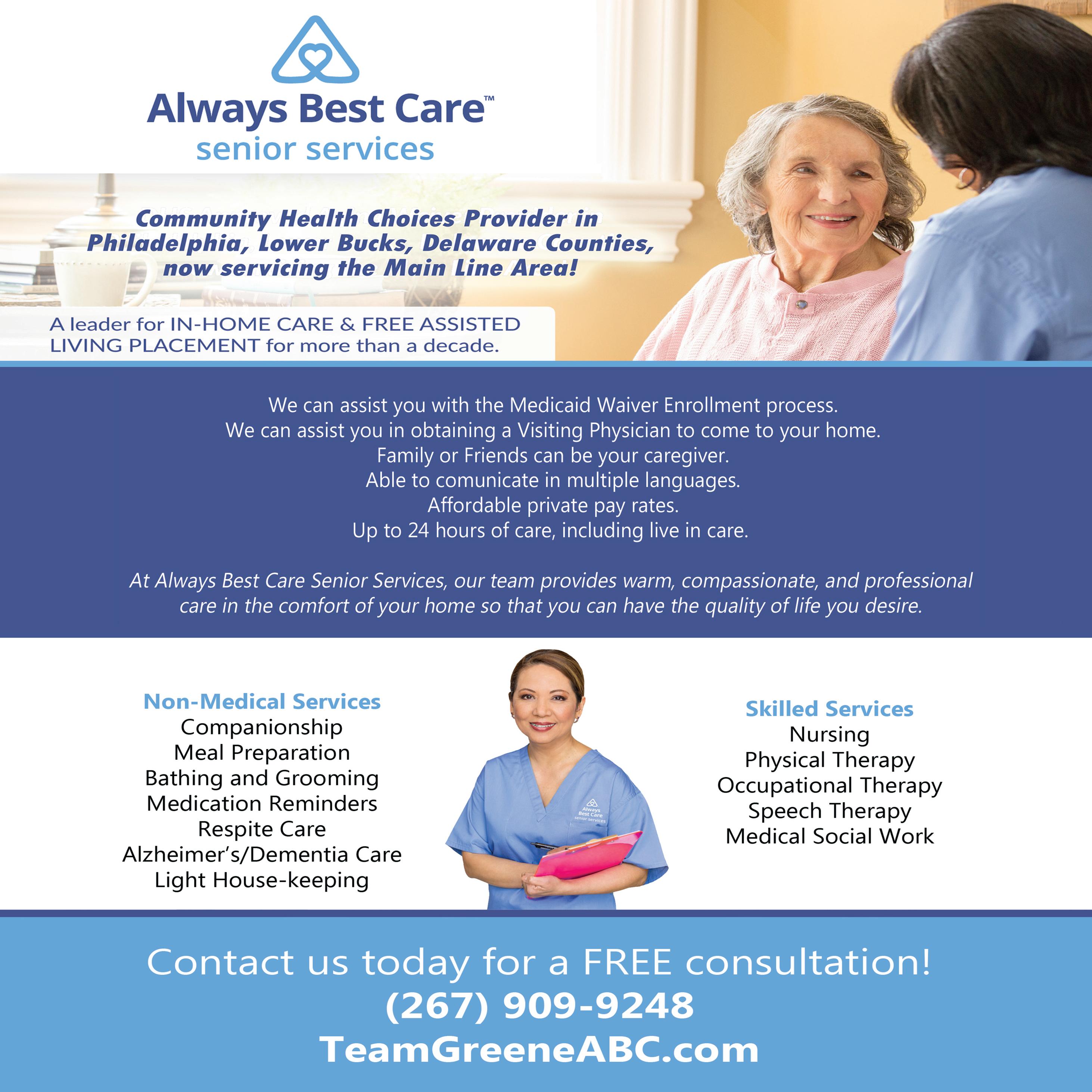

By Bill Conallen
Philadelphia consistently ranks among the largest U.S. cities with the highest percentage of older adults living in poverty. Ensuring the more than 316,000 older Philadelphians have access to essential services and protections is a critical priority. Among the vital programs offered by Philadelphia Corporation for Aging (PCA) is Older Adult Protective Services (OAPS), which works to safeguard seniors from abuse, neglect, exploitation and other risks.
The need for protection Elder abuse remains one of the most underreported social issues in the United States. In Philadelphia, PCA’s OAPS unit investigates reports of abuse, neglect, financial exploitation and self-neglect among adults aged 60 and older. Staffed by trained care managers, investigators and specialists, the program offers intake, assessment, crisis resolution, care
planning and follow-up services to ensure that vulnerable older adults receive the support they need.
As awareness of elder abuse grows, so does the demand for protective services. “We have seen an increase in the number of Reports of Need (RONs), and we are encouraged that more people recognize PCA as a resource for older adults in danger,” said Shani Gilmore, PCA’s executive administrator of long-term care. “Additionally, we commend the Pennsylvania Department of Aging (PDA) for recommending updates to the Older Adults Protective Services Act (OAPSA), which will help strengthen protections for our most vulnerable seniors.”
Through a variety of long-term care services, PCA helps older adults navigate the complexities of aging with dignity, comfort and confidence. A cornerstone of this approach is OAPS, which safeguards some of Philadelphia’s most vulnerable residents with immediate risk support. For those needing ongoing support, PCA conducts a thorough in-home assessment of an older adult’s physical, mental, social and functional abilities and needs. There are
two main programs that provide long-term services and supports in the home that can be accessed through PCA, based on the person’s care needs and financial resources: Community HealthChoices (CHC) and the OPTIONS program.
PCA’s OPTIONS Program provides in-home care, meal delivery, assistance with daily living activities, medical equipment and supplies, home modifications, and adult day center services. With flexibility at its core, OPTIONS tailors services to each person’s unique situation, making aging in place achievable and comfortable.
“The OPTIONS Program is about giving people choices,” said Sean Outen, PCA’s director of long-term care options. “It allows them to stay in their homes and communities while receiving the care they need. That is a powerful thing.”
Despite the growing need for services, last year’s Pennsylvania budget did not include a direct funding increase for Area Agencies on Aging (AAAs), like PCA, which provide critical programs to older adults. This lack of funding threatens the ability of agencies to keep pace with the rising demand for services, potentially leading to longer wait times and reduced access to necessary care.
Gov. Josh Shapiro’s administration has recognized these challenges and has proposed increased funding to the AAA network. “We commend the governor for his
aggressive budget request, which would strengthen supports and services for people in their greatest time of need and those at risk for elder abuse,” said Najja R. Orr, president & CEO of PCA. “Additionally, we appreciate the leadership of the Secretary of Aging in advancing the Comprehensive Agency Performance Evaluation (CAPE) initiative, which will help further professionalize the field and enhance the quality of protective services across the state.”
For more than 50 years, PCA has been committed to supporting Philadelphia’s aging population through services that promote safety, independence and dignity. Through its programs — including OAPS, OPTIONS, caregiver support and personalized assessments — PCA provides a robust safety net that helps older adults thrive in the places they call home. By advocating for stronger protections, increasing public awareness, and ensuring continued funding, we can all play a role in safeguarding the well-being of older adults in our community.
Protecting older adults is a community effort. Anyone who suspects elder abuse, neglect or exploitation can call the PCA Helpline 24/7 at 215-7659040. Reports can be made anonymously, and all calls are strictly confidential. In cases of immediate danger, individuals should call 911.
(Continued from page 2)
Issues around aging can be daunting, especially for people facing health challenges, financial insecurity, or social isolation. That’s why PCA provides no-cost or low-cost services that improve lives:
Home-Delivered Meals & Senior Nutrition:
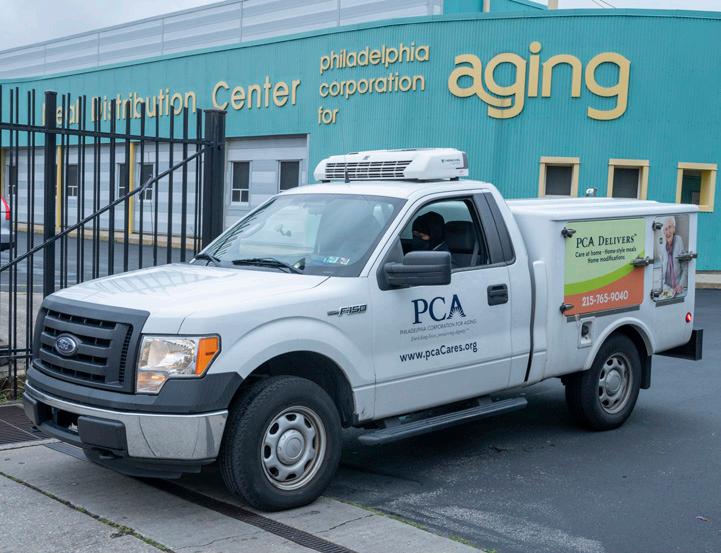
PCA delivers 1.3 million meals annually to older adults who might otherwise go hungry. We operate and support 28 meal sites and senior community centers, where 14,000 Philadelphians gather daily for a meal, social activities, volunteer opportunities, gardening, and health and wellness programs.
Care at Home:
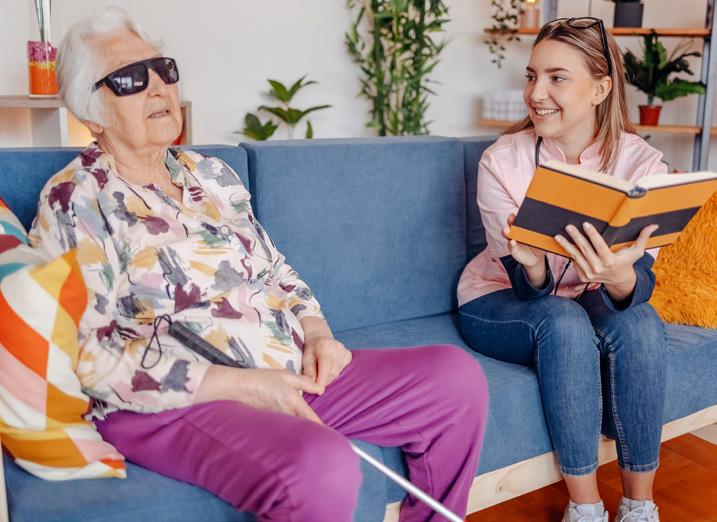
For older adults who want to remain in their homes and communities as they age, we help make that possible. PCA assesses for and ar-
ranges in-home care services, helping with daily tasks, like bathing, cooking and mobility assistance, so older adults can continue living safely in familiar settings.
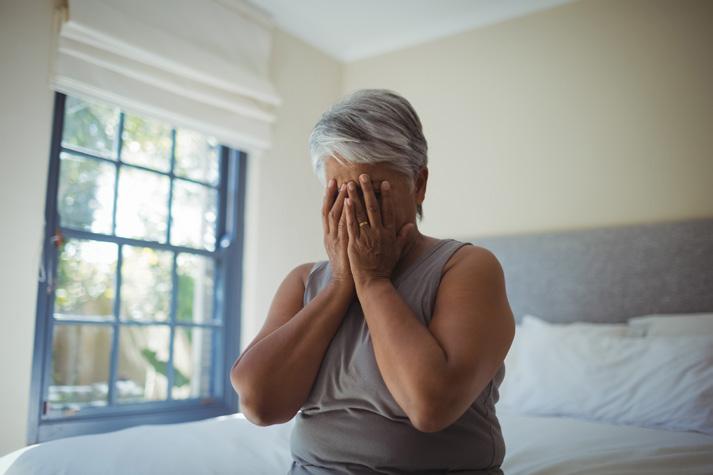
Elder abuse, neglect and exploitation are urgent issues. PCA investigated over 10,000 reports of need in the last fiscal year, ensuring that vulnerable older adults received protection and intervention when needed.
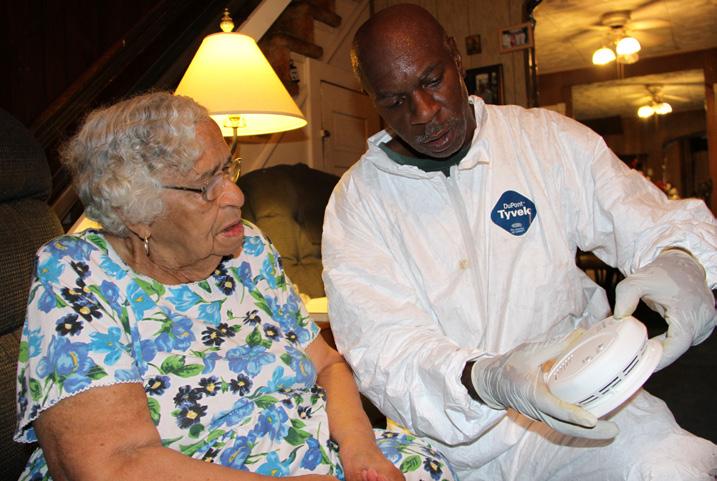
Unsafe housing is one of the biggest barriers to older adults’ independence and a cause of vacancy in communities. PCA helps install grab bars, tub seats, intercom systems, stair railings, and other modifications for improved accessibility at home – safety improvements that support independent living.
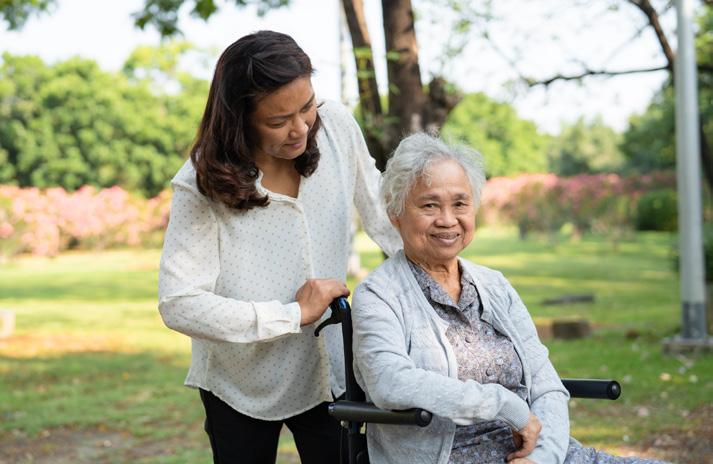
Aging comes with complex challenges, and navigating available resources can be overwhelming. PCA’s helpline receives about 100,000 inquiries every year, connecting people with programs for their needs or to support their friends and loved ones, running a heat line to help people in summertime and educating people about the best Medicare plans for their unique needs.
Everything we do is driven by our goal to empower older Philadelphians to achieve their maximum level of health, independence and productivity. We are proud of the work we do and want to support older Philadelphians to contribute their wisdom and talents to our communities. We know that the needs of our aging population continue to grow — along with the challenges they face.
Even with all that we do, gaps remain. Funding for aging services hasn’t kept pace with demand, leaving critical programs under strain. Inflation, home care worker shortages, rising housing costs and increasing food insecurity are making it harder for older adults to flourish.
We are grateful to Governor Shapiro for his proposed budget to
strengthen support to older adults and to Secretary Kavulich for his visionary leadership and courage to make necessary changes to antiquated policies and practices. We are asking for the legislature’s help with getting the 2025 budget to the finish line and to consider needed changes to strengthen the Older Adults Protective Services Act.
PCA doesn’t just work with older adults and their families – we’re also their advocates. We work alongside local, state and federal leaders to implement policies that ensure older adults continue to be at home in their communities. We need your help and involvement – to donate, advocate, volunteer and come work with us!
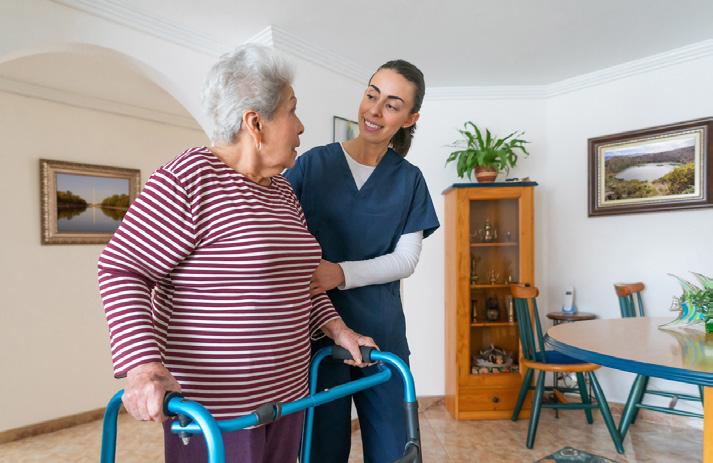
Philadelphia’s older adults built this city, and they deserve a future where they are supported, respected and able to age with dignity. PCA is proud to lead that effort, but we can’t do it alone. We need continued investments and policy actions to ensure our city remains a place where everyone — at every age — can thrive.
To learn more about our services or get involved in our advocacy efforts, visit pcaCares.org.
Empowering caregivers through information, planning resources and financial assistance.

In general, all eligible care receivers may have a household income of up to 380% of the federal poverty level and have a primary unpaid caregiver to receive financial assistance. Additional eligibility requirements for each type of caregivercare receiver relationship include:
Caregivers of older adults
Caregivers, 18 years of age or older, who are caring for an adult that is 60 years of age or older, or a person with Alzheimer’s Disease or related disorder of any age.
Caregivers of adults with disabilities
Relative caregivers, 55 years of age or older, who are caring for and living with an adult with disabilities.
Older relatives caring for children
Non-parent relatives, 55 years of age or older, who are the primary caretakers of children living with them.
How
PCA supports caregivers through:
• Financial assistance • Education and training • Care management • Benefits counseling
Caregivers may receive up to $600 a month in reimbursement for caregiving services and supplies, and may also receive up to a lifetime maximum of $5,000 in housing modifications or assistive devices. Eligible reimbursements include:
Caregivers of older adults and individuals with disabilities
• medical supplies • home modifications • personal/respite care • emotional, legal, and financial counseling • and more
Older relatives caring for children
• before or after school care • daycare and summer camp • educational supplies and programs • and more

By Bill Conallen
There is help to navigate the maze of long-term care services, which can often be a daunting task. Philadelphia Corporation for Aging (PCA) breaks down the barriers to accessing essential services through its expanded Person-Centered Counseling Program. This service offers inperson guidance to help older adults and adults with disabilities quickly and directly access the support they need to remain independent in the community. The no-cost program provides one-on-one counseling to help participants understand their options, develop action plans, and connect with both public benefits and private resources. Through personalized sessions, PCA counselors work to assess individual needs, identify appropriate services and guide participants through the application process.
“So many people come to us feeling lost,” said Nolan Lawrence, director of the PCA Helpline. “They need help, but they do not know where to start. That’s where PCA comes in. Our role is to provide a clear path forward, ensuring individuals understand their options and feel supported throughout the process.”
Eligible participants include Philadelphia residents aged 60 and older, as well as adults aged 18 to 59 who are living with a disability. The program is geared toward those with at least two long -term care needs, such as transportation; home modifications; or daily activities, like bathing and meal preparation. PCA’s approach is designed to ensure that support is tailored to the unique circumstances of each participant.
“We’ve seen firsthand how overwhelming it can be for older adults
and their families to navigate these systems,” said Cary Gottlieb, customer care representative at PCA. “That’s why it’s so important that we offer in-person guidance. Sitting down with someone, answering their questions directly and walking them through the next steps can make all the difference.”
This initiative is part of PCA’s broader partnership with the Pennsylvania Link to Aging and Disability Resources, a statewide network that connects older adults, adults living with disabilities and veterans to vital services. Through this collaboration, participants can access a variety of resources, including caregiver assistance, home repair programs, food and adaptive equipment.
“We work closely with our partners to make sure no one falls through the cracks,” Gottlieb said. “Aging can bring challenges, but we want people to know they don’t have to face them alone. There are resources available, and we’re here to help people access them.”
For many, the opportunity to receive in-person counseling offers more than just logistical help — it provides reassurance during what can often be an overwhelming time. PCA counselors follow up with individuals after initial meetings to ensure they are successfully connected with services and resources.
“We don’t just give people information and send them on their way,” Lawrence emphasized. “We make sure they understand their options and feel confident about the next steps. Then, we check in with them to ensure they’re getting the support they need.”
PCA counselors often witness the relief and gratitude of those who take part in the program. “It’s incredibly rewarding to see the change in someone who came to us feeling frustrated or hopeless,” Gottlieb said. “By the time they leave, they have a plan in place and a sense of control over their future. That’s what this program is all about.”
PCA provides free in-person counseling services with no appointment necessary at its headquarters, located at 642 N. Broad St. in North Philadelphia. Walkin hours are available Monday, Wednesday and Friday from 8:30 a.m. to noon; and Tuesday and Thursday from 8:30 a.m. to 4:30 p.m. Individuals seeking support can visit during these times for guidance and assistance.
Anyone in need of assistance is encouraged to reach out by calling the PCA Helpline at 215-765-9040 or the statewide PA Link Helpline at 1-800-753-8827.
April 2025
APRIL 1-30
NATIONAL VOLUNTEER MONTH

APRIL 2
YOGA
Wind down & feel your body relax. Ease your mind, body & spirit through a series of stretches while sitting & standing. 9:30 a.m. KleinLife: Northeast Philadelphia. 215-6987300 | Free
APRIL 4
PINOCHLE
Sharpen your mind & enjoy some friendly competition. Whether you are new to the card game or looking to refine your skills, this class will guide you through the rules, strategies & techniques. 1 p.m. Journey’s Way. 215-487-1750 | Free

Send your calendar items two months in advance to: MilestonesNews@pcaCares.org Questions? Call 215-765-9000, ext. 5081.
APRIL 8-MAY 13
AGING WELL WITH HIV
Virtual, evidence-based workshop about ways to manage HIV & other chronic conditions as we age. 10 a.m. to 12:30 p.m. Zoom. 215-765-9000, ext. 5123 | Free | Weekly: Tuesdays
APRIL 8
MUSIC THERAPY
Music interventions help accomplish individualized goals with a credentialed professional. 9 a.m. Lutheran Settlement House. 215-426-8610 | Free
APRIL 9 BINGO
Come have fun! 10 a.m. Philadelphia Senior Center – Allegheny. 267-286-1455 | $0.10/ board (6 board minimum)
APRIL 10
POETRY CLASS
Discover the joy of self-expression. Engaging & interactive class for older adults who want to explore the art of poetry, whether beginner or experienced writers. 10:30 a.m. Center in the Park. 215-848-772 | Free
APRIL 11
CHAIR ZUMBA
With upbeat music & both sitting & standing (with chair support) exercises, you will be energized & ready to take on the rest of the week. 9:30 a.m. KleinLife: Northeast Philadelphia. 215-698-7300 | Free
APRIL 13-20
PASSOVER

APRIL 15
QUILTING CLASS
Unleash your creativity & learn the timeless art of quilting. Whether you’re a beginner or an experienced quilter, this class offers a welcoming space to develop your skills. Noon. Martin Luther King Older Adult Center. 215-685-2715 | Free
APRIL 15
TAX DAY

APRIL 17
OPEN TECH CENTER
Take advantage of open computer use with some instruction (if needed) for technology topics, such as iPads, smartphones & Zoom. 10 a.m. KleinLife: Northeast Philadelphia. 215-698-7300 | Free
APRIL 20
EASTER

APRIL 22
EARTH DAY

APRIL 22
ENHANCE FITNESS
Revitalizing exercise class tailored specifically for older adults. This low-impact, full-body workout is designed to improve strength, flexibility & mobility while boosting overall health & well-being. 10 a.m. Center in the Park. 215-848-772 | Free
APRIL 23
TOTAL FITNESS CLASS
Complete body workout while standing & sitting with the use of light hand-held exercise equipment, such as weights & fitness balls. 10:30 a.m. Philadelphia Senior Center – Allegheny. 267-286-1455 | $1
APRIL 24
ART CLASS
Explore various artistic mediums with the assistance of an art teacher. Participants will learn a variety of techniques, including painting, watercolors, paper mache, sketching & collage. 9 a.m. Lutheran Settlement House. 215-426-8610 | Free

APRIL 25
LINE DANCE
Get ready to move & groove in this fun & energetic class. Whether you are a beginner or a seasoned dancer, this class is for you. 9:30 a.m. Martin Luther King Older Adult Center. 215-685-2715 | Free
APRIL 26
WRITING CLUB
Weekly drop-in meeting for adult writers, authors & poets of any background or genre. Noon. Walnut Street West Library. 215-685-7671 | Free
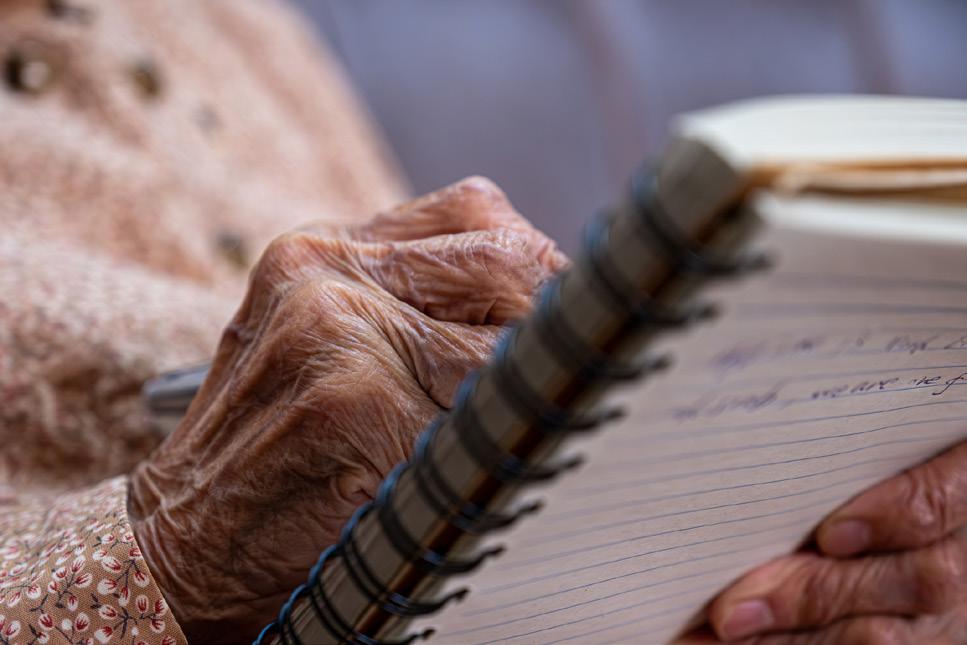
APRIL 29
BLOOD PRESSURE SCREENING
Learn about factors that can impact your health & check out a blood pressure monitor to track your blood pressure at home. Screenings provided by Jefferson Health. 1 p.m. Falls of Schuylkill Library. 215-6852093 | Free
APRIL 30
RELIEF FOR NECK & SHOULDERS
Participants will learn easy movements to reduce or eliminate tension in the neck & shoulders. Noon. Bushrod Library. 215685-1471 | Free

By Sarah Greer
Autism is a neurodevelopmental condition that can be described as a spectrum of needs and strengths across social interactions, communication and daily life, according to the Philadelphia Autism Project, 2025. While autism is often associated with children, it’s important to note that it is a lifelong condition. Many older adults and individuals with disabilities may also be on the autism spectrum. Each autistic person is affected differently.
Autism impacts people of all ages, races, ethnicities, and socioeconomic backgrounds, says the Philadelphia Autism Project, 2025. Some autistic individuals may require significant support, while other individuals with autism may live independently.
Person-first, identity first language
Philadelphia Corporation for Aging (PCA), publisher of Milestones, typically uses person-first language when referring to health
autism
“All people with autism are the same.”
Autism is incredibly diverse. No two people with autism are alike. One person may excel in classes but struggle with social skills. At the same time, another may be highly empathetic yet sensitive to loud environments.
“Autism is a childhood condition.”
Here are some ways we can support individuals on the spectrum:
• Listen and respect: Recognize and respect individual needs, communication styles and boundaries.
• Provide clear communication: Use straightforward language and avoid abstract expressions that may be hard to interpret.
or disabilities. However, throughout this article, you will see the use of both person-first language (example: individual with autism) and identity-first language (example: autistic person). In the autism community, many self-advocates prefer identity-first language because it is believed to be an inherent part of their identity. However, others believe the opposite and prefer person-first language. To be respectful of all members of the community, it is recommended that you always ask the individual which terminology they prefer.
Although autism is often diagnosed in childhood, many individuals remain undiagnosed until adulthood. This is particularly true for older adults who grew up when autism was less understood.
Recognizing autism in older adults can provide them with tools to understand themselves and access services better they may not have realized they needed.
Common misperceptions about
Autism doesn’t go away as people age. Older adults with autism may face unique challenges, such as navigating social relationships, maintaining employment, or living independently.
“People with autism lack empathy.”
This is a harmful stereotype. Many people with autism experience deep emotions and care for others, though they may express it differently.
“Autism is caused by vaccines.” This misconception has been widely debunked. Autism is a neurodevelopmental condition with genetic and environmental factors, not something caused by vaccinations.
“People with autism can’t work or live independently.”
Many individuals with autism thrive in the workplace and live fulfilling independent lives.
Supporting those on the autism spectrum
Understanding autism helps to create inclusive communities that serve everyone, including older adults and people with disabilities.
• Create sensory-friendly spaces: Reduce harsh lighting, loud noises and other sensory triggers in public or communal areas.
• Encourage routines: Predictability can be reassuring for many individuals with autism.
By understanding autism and addressing common misconceptions, we can better serve our community and create spaces where everyone thrives.
For more information or resources about autism:
Philadelphia Autism Project supports individuals with autism and their families living in Philadelphia. For information: 215571-3209 | phillyAutismProject. org
The ASERT Collaborative is a statewide organization that offers resources for individuals, caregivers, family members, professionals and community members. For information: 1-877-231-4244 | PAAutism.org
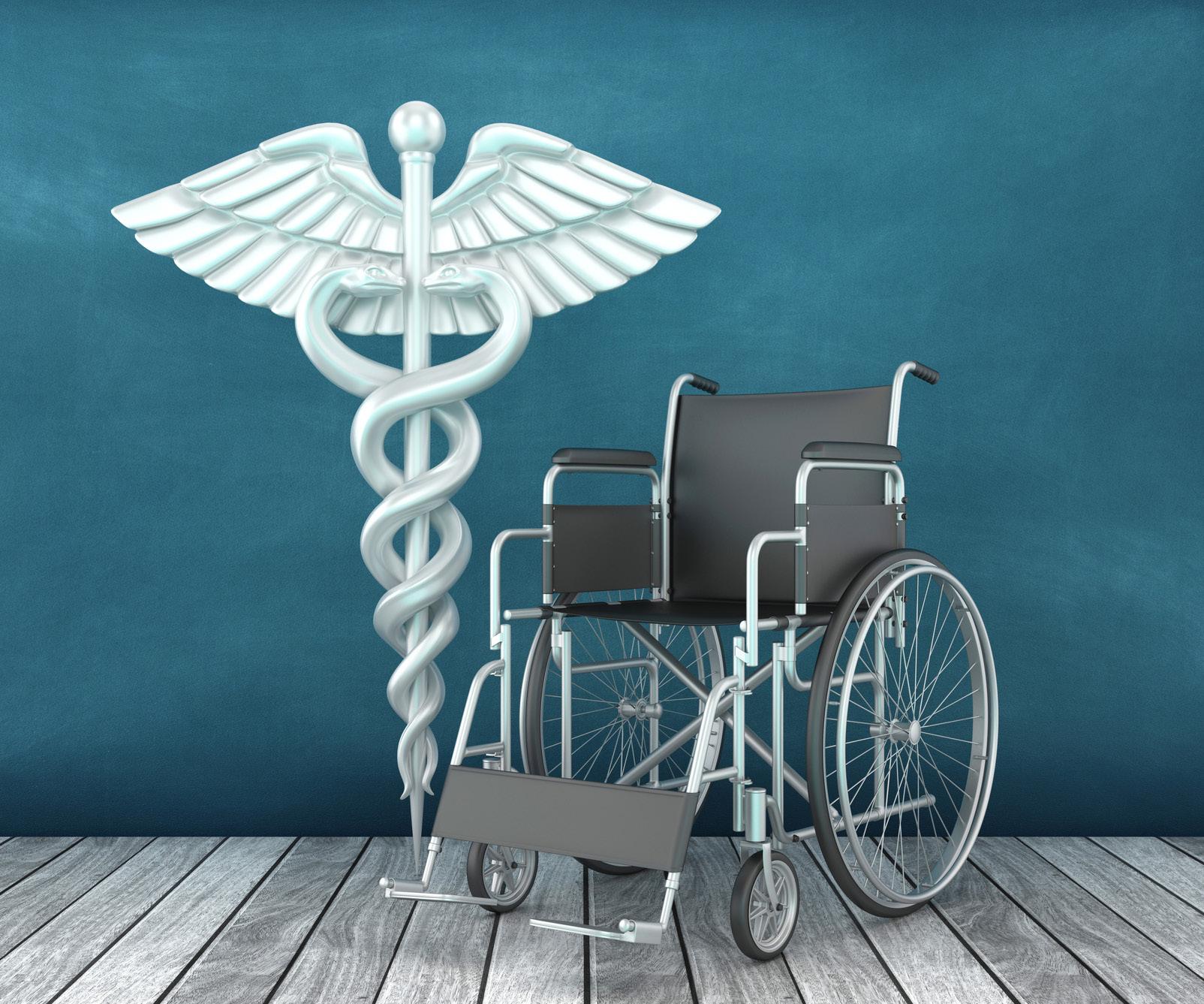
Source: The FBI Philadelphia Field Office
Older Pennsylvanians and caregivers are important partners in combatting fraud in the health care industry. Health care fraud takes many forms, including the exploitation of Durable Medical Equipment (DME).
These items are prescribed by a doctor to treat a medical need at home. Examples of DME include wheelchairs, surgical supplies, braces, catheters, nebulizers and feeding tube supplies. While legitimate DME and orthotics companies play an important role in providing these supplies to patients, fraudulent companies take advantage of unwitting Medicare beneficiaries for their own financial gain.
A popular DME scheme in-
kickbacks to the co-conspirators. Watch out for these red flags for DME fraud schemes:
• You see on your Medicare Summary Notice (MSN) or Explanation of Benefits (EOB) charges for equipment you do not need or did not receive.
• You receive medical equipment or supplies that you never requested or ordered.
• You receive an unsolicited request for your Medicare information at a presentation, during a sales pitch, in an email or phone call.
If you or someone you know be-
lieves they have been the victim of health care fraud, you can report suspected fraud to the FBI online at https://tips.fbi.gov or call 215418-4000. If you suspect Medicare fraud, report it to 1-800-MEDICARE (633-4227) or at medicare. gov/fraud. Philadelphia Corporation for Aging’s Older Adult Protective Services Unit investigates reports of suspected elder abuse, including financial exploitation, 24/7 at 215-765-9040.
The FBI Philadelphia Field Office leads a Health Care Fraud Task Force that’s comprised of federal, state and local law enforcement agencies.
volves the use of telemarketers to obtain the private information of Medicare beneficiaries. This information is then used to fraudulently bill Medicare for medically unnecessary pieces of DME.
The consultants or telemarketers are hired by the DME company and are the organizer(s) of the scheme. They facilitate the actions of those involved. The call center contacts the beneficiaries; confirms they are on Medicare and transfers them to the telemedicine company. The telemedicine company employs doctors who write medically unnecessary prescriptions for DME. The call center collects the prescriptions and sells them to the DME company. After the DME company buys the prescriptions, they send the equipment to the beneficiaries. The company bills Medicare and pays
Join the students from the Roxborough School of Nursing for our Annual Health & Wellness Fair at the Roxborough YMCA!
Thursday | May 1 | 9:00 AM - 12:00 PM |

Enjoy FREE health screenings, informative sessions, and more! For additional information, scan the QR code or call (215) 482-3900.







Source: pa.gov
Beginning May 7, 2025, a REAL ID-compliant driver’s license or ID card, or another form of federally acceptable identification (such as a valid passport/passport card or military ID) will be required to board a domestic commercial flight and to enter military bases or other federal facilities that require ID at the door. More than 2.5 million Pennsylvanians have gotten a REAL ID driver’s license or ID card since they became available in the state in 2019.
Getting a REAL ID is optional in Pennsylvania, and a passport is still needed for international travel.
To determine whether your current ID is REAL ID-compliant,
look at the top right of the card, underneath the words “DRIVER’S LICENSE” or “IDENTIFICATION CARD” — a star inside a circle means it is REAL ID-compliant, while the words “NOT FOR REAL ID PURPOSES” indicate that it is not compliant.
Federal REAL ID regulations require that PennDOT must verify these documents:
• Proof of identity: Original or certified copy of a birth certificate filed with the State Office of Vital Records/ Statistics with a raised/embossed seal; or a valid, unexpired U.S. Passport.
• Proof of Social Security number with current legal name and all nine digits: Social Security card, W-2 form,
SSA or non-SSA 1099 form, or pay stub.
• Two proofs of current, physical Pennsylvania address: Current, unexpired Pennsylvania driver’s license or ID card; vehicle registration; or a utility bill with the same name and address.
• Proof of all legal name changes (if current legal name is different than name on proof of identity document): Certified marriage certificate issued by the County Court for each marriage, court order approving a change in legal name or adoption decree issued by your county’s family court.
More information about REAL ID document requirements can be found on PennDOT’s REAL ID website at pa.gov/realid. When a customer receives a first REAL ID product, there is a one-time fee of $30, plus the applicable renewal fee. (The current renewal fee is $39.50 for a fouryear non-commercial driver’s license and $42.50 for photo ID.) The expiration date of the initial REAL ID product will include any time remaining on the existing non-REAL ID product, plus an additional four years, unless the customer is over 65 and has a twoyear license. Ater the initial REAL ID product expires, there is no additional fee beyond regular renewal fees to renew a REAL ID product.
After customers present the proper documentation and pay the applicable fee, customers may obtain a REAL ID-compliant product by:
• Mail within 15 days, if application was made at a Driver License Center.
• In person, if application was made at one of PennDOT’s 15 REAL ID Centers.
Customers who received their first Pennsylvania driver’s license, learner’s permit or photo ID card after Sept. 1, 2003, may already have their REAL ID documentation on file with PennDOT. These customers can apply for REAL ID pre-verification and order a REAL ID online.
For a full list of driver license centers, REAL ID Centers and services offered, please visit the PennDOT Driver and Vehicle Services website at pa.gov/dmv (click “find a location”) or call 717-4125300.
(See page 15 for crossword)
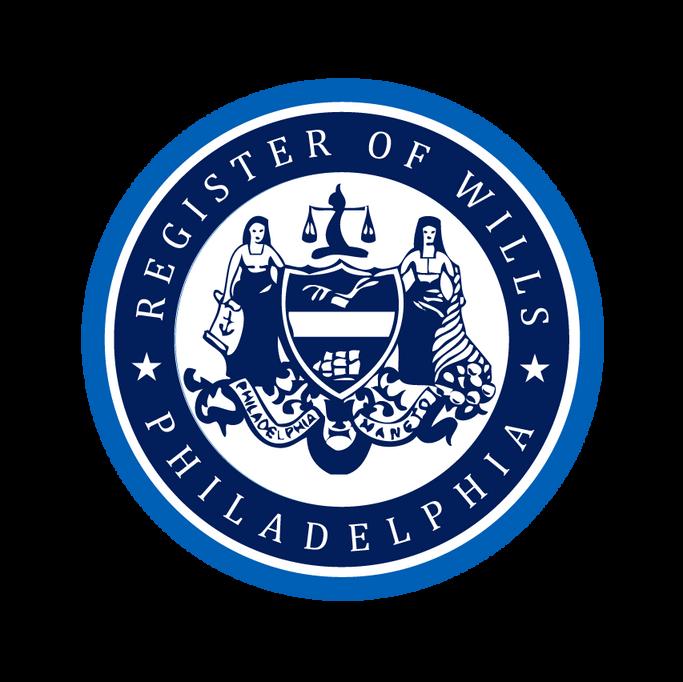
Find and Request a Marriage Record
We require:
The names that both people used when they applied for the marriage license
The date of the marriage
A self-addressed, stamped envelope
A telephone number
To Request a Certified Copy:
$40 money order for the certified copy fee
$70 money order for the expedited certified copy fee
To Request an Exemplified Copy:
$65 money order for the certified copy fee
$95 money order for the expedited certified copy fee
Please Note: Each money order should be payable to the CITY OF PHILADELPHIA


By Mary Anna Rodabaugh
As we leap into spring, older adults can shake off the cold of winter and participate in activities outside the home. Here is a roundup of fun activities that offer discounts to older adults.
This community initiative makes arts and culture more accessible and affordable. Recipients of public assistance for food or medical benefits receive $2 admission to over 80 cultural sites throughout Greater Philadelphia. To learn more: 267-515-6727 or art-reach. org/access.

Older adults can enjoy a visit to Philadelphia’s Magic Gardens, located at 1020 South St., for the discounted admission price of $12. Philadelphia’s Magic Gardens is an immersive mixed media art environment made of Isaiah Zager’s mosaics. Spot artworks created by handmade tiles, bicycle wheels and other objects. The space is also made up of two indoor galleries and a bi-level outdoor sculpture garden. Reserve a spot and purchase tickets at PhillyMagicGardens.org or call
215-733-0390, ext. 119. The gardens are open Wednesday through Monday, from 11 a.m. to 6 p.m. All discounted ticket purchases will require proper identification.
Please note: Exhibits at Philadelphia’s Magic Gardens contain stairs and narrow passageways that are not equipped with ramps or elevators.
Philly Theatre Week: April 3-13
Theatre Philadelphia hosts Philly Theatre Week, a celebration of the artists, organizations and audiences that have made Greater Philadelphia one of the most vibrant theatre regions in the nation. Through a series of productions, readings and interactive events, audiences will have an opportunity to try something new from the local theatre community.
This year, all Philly Theatre Week tickets are “Pay What You Can.” To view the schedule of shows and events, as well as to reserve your seat, visit TheatrePhiladelphia.org and click “Philadelphia Theatre Week.”
2025 Subaru Cherry Blossom Festival: April 5 and 6
The Subaru Cherry Blossom Festival is an annual spring celebration of Japanese arts and culture organized by Japan America Society of Greater Philadelphia (JASGP).
Featuring a variety of events throughout the city, this yearly festival brings a taste of Japan to Philadelphia and highlights the beauty of Japanese “sakura” — the flowering cherry trees that bright-
en city streets and parks with their distinctive pink and white blossoms. The event will take place at The Fairmont Park Horticulture Center, located at 100 N. Horticultural Dr.
While this event does not offer a senior discount, anyone with an ACCESS card can attend for $5. General admission is $15. Learn more at JapanPhilly.org/festivals/ cbf-2025 or call 215-878-5090.

Journey within through qigong
Qigong is an ancient exercise, like tai chi, that focuses on slow, mindful movements. It helps to improve health and relieve anxiety. You can attend all or just one class in this free series that’s offered April 8, 15, 21 and 29 at the Holmesburg Library, located at 7810 Frankford Ave. Classes start at 2 p.m. The Free Library of Philadelphia’s more than 30 neighborhood locations offer many free classes and workshops throughout the year. To learn more, visit
FreeLibrary.org/calendar or call 1-833-TALK-FLP (825-5357).
Seniors Stroll the Bases with the Phillies: April 17
Fans age 55 and older can walk the bases at Citizens Bank Park after the 4:05 p.m. game against the San Francisco Giants on Thursday, April 17. To participate in this unique opportunity, purchase game tickets at $10 each or $20, which includes concession credit for $12. Seating will be in the baseline area (Sections 108-111, 136-139) or the outfield (Sections 101-107, 140-148). To learn more or to purchase tickets (use discount code SENIOR) visit phillies.com/tickets/promotions or call the Phillies ticket office at 215-463-1000.
Located at 1214 Arch St., this art museum is devoted to stimulating experimentation among contemporary artists and sharing their processes with the public. The Fabric Workshop and Museum has a well-known artist-in-residence program, offers education and apprenticeships, and is open seven days a week. Admission is free. To learn more: 215-561-888 or FabricWorkshopAndMuseum. com.
These are just a sample of activities older adults on a budget can enjoy. Be sure to check to see if your favorite museums or performance venues offer senior discounts as well.
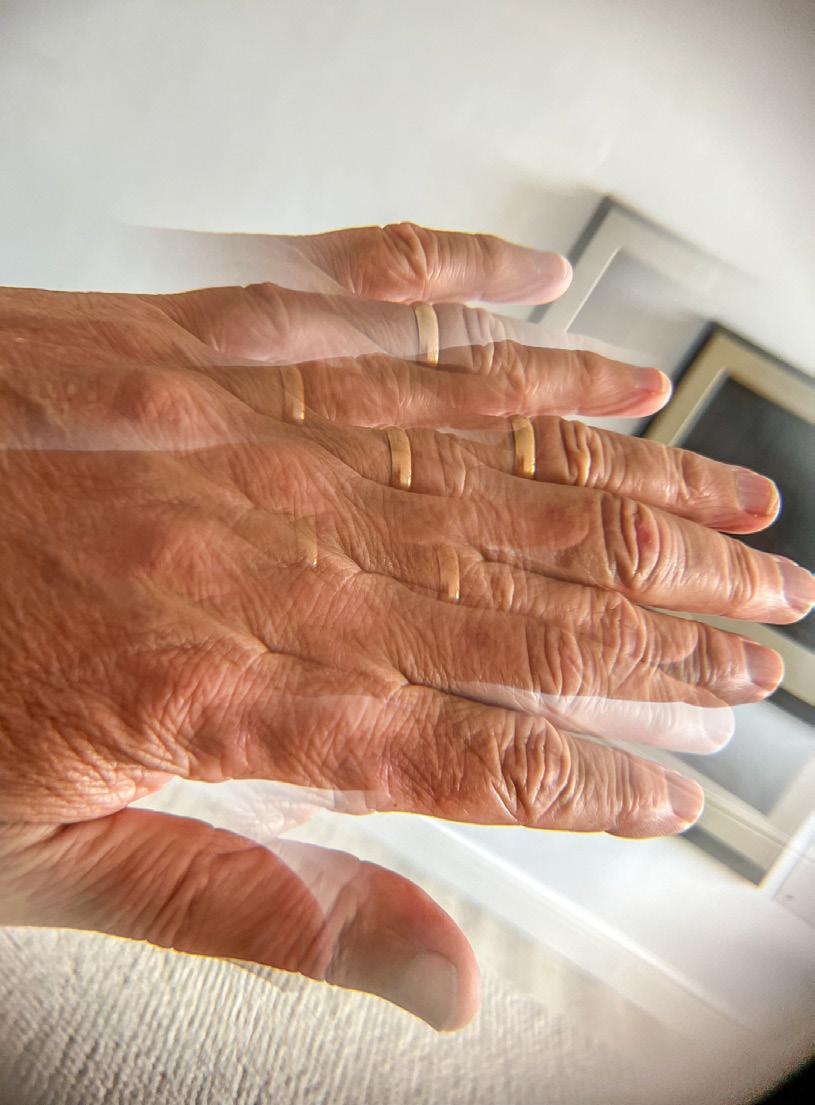
Source: Parkinson’s Foundation
Parkinson’s disease (PD) is a movement disorder of the nervous system that impacts muscle control. PD affects 10 million people worldwide. Symptoms generally develop slowly over years. The progression of symptoms is often different in each person due to the disease’s diversity. People with PD may experience:
• Tremors or shaking of the hand or limb that occurs at rest.
• Slowness and scarcity of movement.
• Limb stiffness or rigidity.
• Trouble with balance or falls.
• Non-motor symptoms include anxiety, apathy, hallucinations, constipation, drop in blood pressure when standing, sleep problems, loss of smell and cognitive impairments.
The cause of PD remains largely unknown, but scientists believe a combination of genetic and environmental factors may be at the root. Although there is no cure, treatment options vary and include medications, lifestyle adjustments and surgery. While PD itself is not fatal, disease complications can be serious. According to the Centers for Disease Control and Prevention, complications from PD are the 14th cause of death in the U.S.
Diagnosis of PD can be a lengthy process. A physical exam, along with the patient’s history and symptoms are used to make the diagnosis. There is no single test that can diagnose PD. Certain tests, such a brain MRI, a dopamine transporter scan (DaTscan) and/ or blood work can be used to support the diagnosis of PD or to rule out other medical conditions.
Making an accurate diagnosis of Parkinson’s, particularly in its initial stages, can be difficult. Often, an internist or family physician will make a diagnosis. Many people seek an additional opinion from a movement disorder specialist, which is a neurologist with experience and specific training in the assessment and treatment of PD and related disorders.
For resources and information about Parkinson’s disease, you can contact Parkinson’s Foundation New Jersey & Pennsylvania Chapter at 908-3967048 or parkinson.org/njpa, TheParkinsonCouncil.org or 610-668-4292, or DanceForParkinsons.org.
